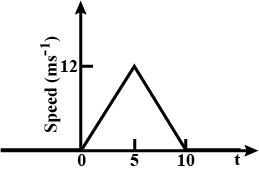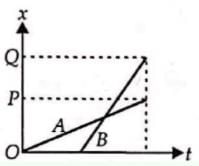Test: Instantaneous Velocity & Speed - NEET MCQ
15 Questions MCQ Test - Test: Instantaneous Velocity & Speed
A particle moves with uniform velocity. Which of the following statements about the motion of the particle is true?
The position of an object moving along x-axis is given by x = a + bt2, where a = 8.5 m and b = 2.5 m s−2 and t is measured in seconds. The instantaneous velocity of the object at t = 2 s
The motion of a particle is described by the equation x = at + bt2 where a = 15 cm and b = 3 cm/sec2. Its instantaneous velocity at time 3 sec will be:
The motion of a particle is described by x = x0(1 − e−kt); t ≥ 0; x0 > 0, k > 0. With what velocity does the particle start?
The velocity of the particle at any time t is given by v = 2t(3 − t)m s−1. At what time is its velocity maximum?
The motion of a body is given by the equation dv/dt = 6 − 3v where v is the speed in m s−1 and t is time in s. The body is at rest at t = 0. The speed varies with time as
The position x of a particle with respect to time t along x-axis is given by x = 9t2 −t3. where x is in metres and t is in seconds. What will be the position of this particle when it achieves maximum speed along the + x direction?
Figure shows the displacement (x) -time (t) graph of the particle moving on the x-axis.
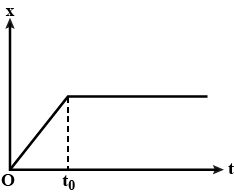
The figure shows the x−t plot of a particle in one-dimensional motion. Two different equal intervals of time are shown. Let v1 and v2 be speed in time intervals 1 and 2 respectively. Then
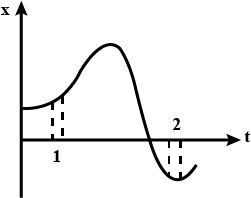
The position-time (x - t) graphs for two children A and B returning from their school O to their homes P and Q respectively are as shown in the figure. Choose the incorrect statement regarding these graphs.
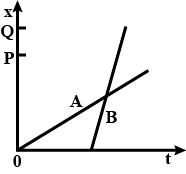
The displacement-time graph of a moving particle is shown below. The instantaneous velocity of the particle is negative at the point
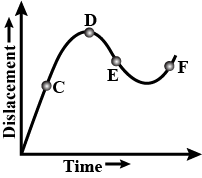
In the given v-t graph the distance traveled by the body in 5 seconds will be
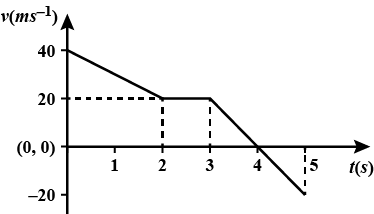
The speed-time graph of a particle moving along a fixed direction is shown in Fig. Obtain the distance traversed by the particle between time t = 0 s to 10 s.
